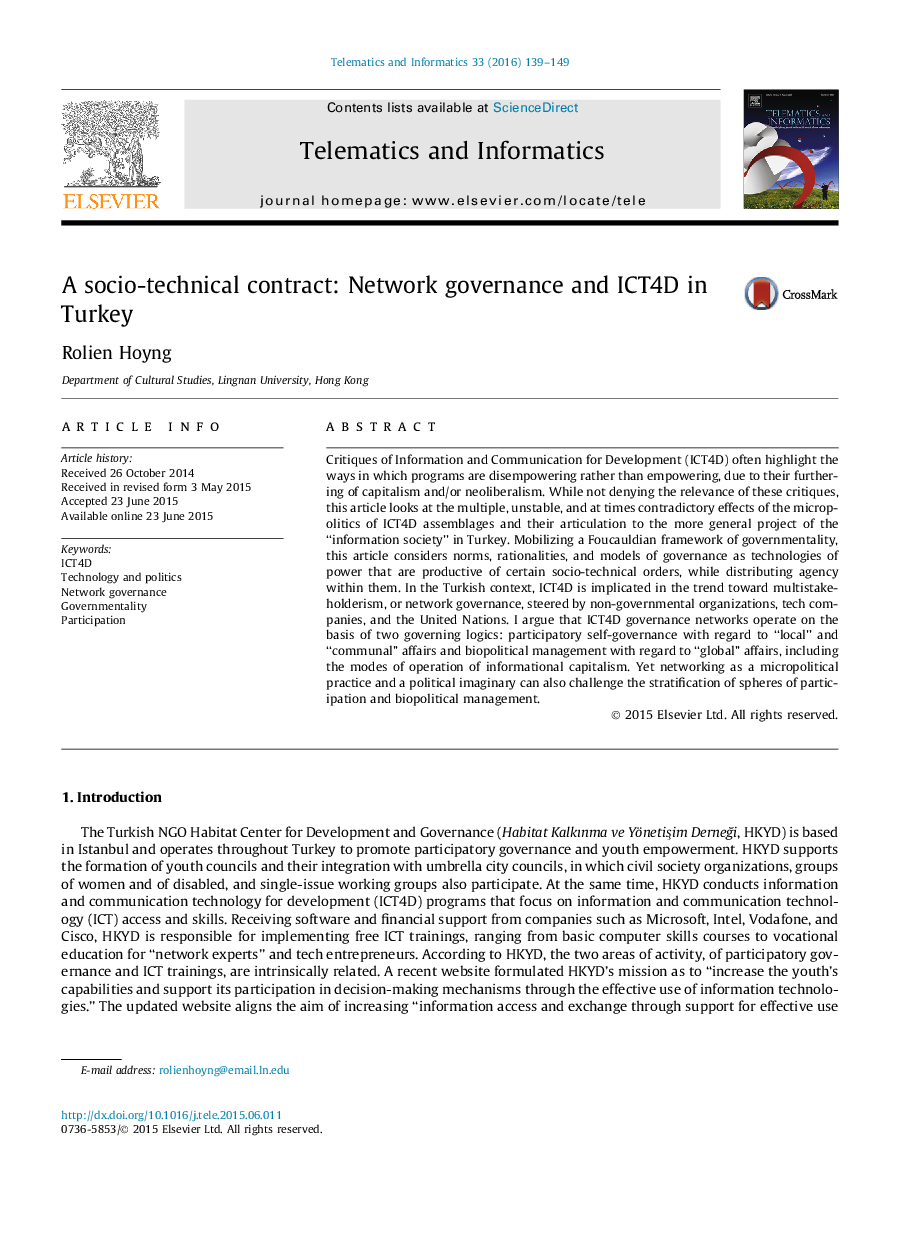| Article ID | Journal | Published Year | Pages | File Type |
|---|---|---|---|---|
| 465313 | Telematics and Informatics | 2016 | 11 Pages |
•ICT4D in Turkey is implicated in multi-stakeholderism, or network governance.•Networking forms a technological practice involving ICTs and a political imaginary.•“Transparency” as norm supports selective positions of authority and control.•ICT4D enables self-governance yet risks depoliticizing the “information society.”•ICT4D is not just an agent of capitalism as effects are multiple and contradictory.
Critiques of Information and Communication for Development (ICT4D) often highlight the ways in which programs are disempowering rather than empowering, due to their furthering of capitalism and/or neoliberalism. While not denying the relevance of these critiques, this article looks at the multiple, unstable, and at times contradictory effects of the micropolitics of ICT4D assemblages and their articulation to the more general project of the “information society” in Turkey. Mobilizing a Foucauldian framework of governmentality, this article considers norms, rationalities, and models of governance as technologies of power that are productive of certain socio-technical orders, while distributing agency within them. In the Turkish context, ICT4D is implicated in the trend toward multistakeholderism, or network governance, steered by non-governmental organizations, tech companies, and the United Nations. I argue that ICT4D governance networks operate on the basis of two governing logics: participatory self-governance with regard to “local” and “communal” affairs and biopolitical management with regard to “global” affairs, including the modes of operation of informational capitalism. Yet networking as a micropolitical practice and a political imaginary can also challenge the stratification of spheres of participation and biopolitical management.
